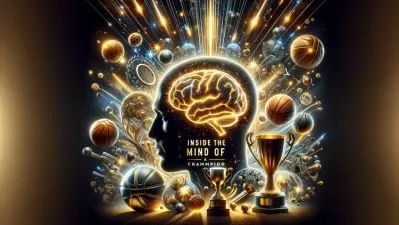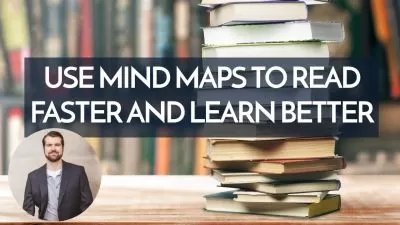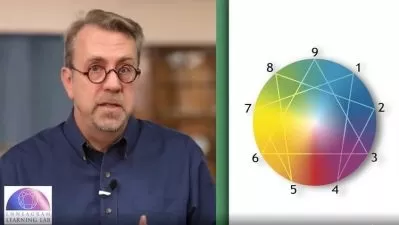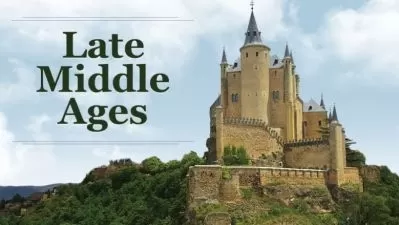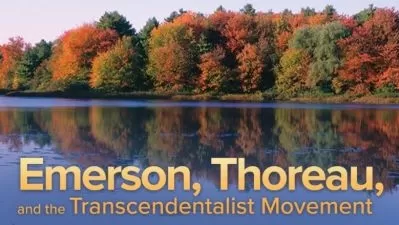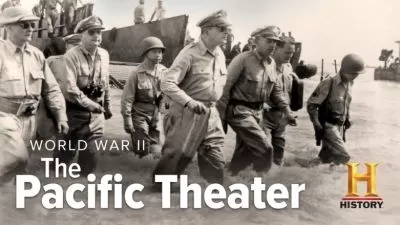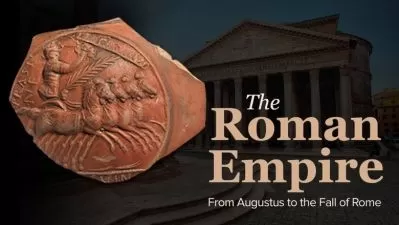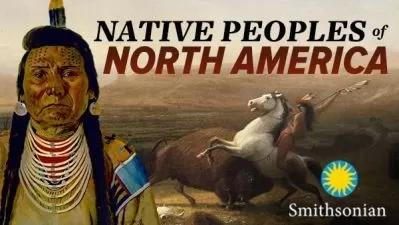Great Minds of the Medieval World
Dorsey Armstrong
12:02:34
Description
The medieval era was a watershed in Western history. This was a time of extraordinary advances in numerous fields of knowledge ranging from philosophy and theology to science, medicine, literature, and economics—as well as of revolutionary developments in education and the birth of the university. In its effects, this fascinating epoch was not only a time of great innovation, it was the era in which the seeds of the modern West were sown.
The unique legacy of the Middle Ages appears most clearly in the lives of its intellectual giants. Between the 4th and 15th centuries, the European and Mediterranean worlds produced an astonishing spectrum of visionary thinkers who shaped the culture of their times and profoundly influenced subsequent eras, leaving their mark on history in ways that reverberate to the present day.
In this seminal period, towering figures such as Augustine of Hippo, Ambrose of Milan, and Thomas Aquinas worked to integrate the Greek philosophical tradition and the Christian theological tradition, forming a platform of thought and knowledge from which the modern Western world would take shape.
Medieval innovation also developed through a great cross-fertilization of thinking, involving the work of remarkable minds such as
- Anicius Boethius, the Roman politician and philosopher whose work established a template of academic education that endures in the modern world;
- Alhacen, the Islamic scholar who pioneered core theories of optics and is considered the father of scientific methodology;
- Maimonides, the Jewish philosopher and jurist whose writings remain a core element of Jewish law and culture; and
- Alfred the Great of England, a monarch who sought to better his world by spearheading an ambitious educational program of preserving and translating important texts.
The voices of brilliant women were also heard in these times, among them
- Héloïse, the illustrious French scholar of classical languages and literatures, religious luminary, and one of history’s preeminent intellects; and
- Christine de Pisan, who, defying tragic circumstances, became Europe’s first professional female writer, penning provocative and impactful works across a remarkably broad range.
In the Middle Ages’ foremost minds, we see the roots of numerous elements of today’s world—from the religious thought of Gregory the Great and Rashi to the enlightened government of Charlemagne and Lorenzo de’ Medici, the logical formulations of William of Ockham, and the literary creations of Dante Alighieri and Thomas Malory.
In the 24 lectures of Great Minds of the Medieval World, Professor Dorsey Armstrong of Purdue University guides you on a compelling journey into the lives of the vanguard thinkers of the Middle Ages. Employing a broad definition of greatness, this course discusses the era’s most outstanding innovators and visionaries whose great contributions included facilitating the achievements of others. In this remarkable gallery of great minds, you’ll encounter the leading lights of a world-shaping era, exploring their unique contributions to knowledge and the growth of our civilization.
The Master Spirits of an Age
Beginning with the monumental Augustine of Hippo, whose life and writings laid a foundation for philosophical and religious thinking for centuries to come, you’ll study the contribution of intellects such as these:
- The Venerable Bede: Come to grips with this extraordinarily prodigious thinker—the revered English monk, theologian, multifaceted writer, and teacher under whose influence England became one of the great centers of learning of the early Middle Ages.
- Avicenna: Learn about this peerless Persian scholar, a mathematical genius and author of the foundational texts of medieval medicine, whose penetrating philosophical works deeply influenced the great intellects of the Islamic, Christian, and Jewish traditions.
- Hildegard of Bingen: Take the measure of the divine visions and mystical writings of Hildegard, one of the Middle Ages’ great polymaths and one of the few figures to be officially sanctioned and authorized by the church; and explore her impact as a preacher and her remarkable contributions to medicine, music, and literature.
- Peter Abelard: Learn about the hugely impactful works and theories of arguably the medieval era’s greatest intellect, a philosophical firebrand who was tried twice for heresy; and examine his controversial career and his tragic love affair with the brilliant Héloïse.
- Thomas Aquinas: Encounter this weightiest of minds and religious scholar of vast influence, and investigate his core thought on Aristotle and his Summa Theologiae, containing perhaps the most famous arguments for God’s existence ever written.
- Lorenzo de’ Medici: Witness how this extraordinary Italian statesman, as the de facto political leader of Florence, balanced ingenious diplomatic exploits with a visionary dedication to continuing education and passionate patronage of literature and art.
A Rich Diversity of Groundbreaking Thought
Across the span of the lectures, you’ll investigate medieval thinkers who grappled with a wide range of human concerns. In the realm of education, you’ll assess the pivotal achievements of figures such as Isidore of Seville and Peter Lombard, whose writings were cornerstones of academic training and scholarship during the Middle Ages.
The lectures also reveal a range of farsighted medieval statesmen. In addition to exploring the thought of Alfred the Great and Lorenzo de’ Medici, you’ll learn how the Frankish emperor Charlemagne used his intellect to build a state that supported theology and philosophy, sending scouts throughout the known world to gather, preserve, and translate texts, and bringing to his court the greatest living minds of the late 8th and early 9th centuries.
In the domain of art, you’ll grasp how the Italian poet Petrarch pioneered psychological realism in poetry, influencing Shakespeare. And you’ll observe how Dante and Chaucer developed literary strategies that allowed them to ruminate on the full spectrum of medieval society.
A Story of Astounding Human Dimension
As a highly memorable asset of this course, Professor Armstrong goes to great lengths to bring these historical figures to life in three-dimensional terms. A medievalist of profound knowledge and insight, she details not only their great works and intellectual contributions, but also conveys a vivid sense of their personal realities, ambitions, triumphs, and failings in an enthralling engagement with some of history’s most remarkable human beings.
Among many unforgettable moments, you’ll encounter the beloved Bede on his deathbed—still editing, translating, and teaching his students until his final breath. You learn of Thomas Aquinas’s incredible powers of mind and ability to dictate his unfolding thought to three or four secretaries simultaneously. You’ll learn how the symbiotic relationship between Abelard and Héloïse shaped their destinies and greatest achievements. And you’ll come face to face with Saladin, a great military leader and studious intellect who worked for peace, and whose extraordinary acts of chivalry to his enemies are perhaps unique in all of history.
In Great Minds of the Medieval World, you’ll enjoy a richly illuminating portrait of the human industry, vision, and phenomenal brilliance that is the gift and legacy of the Middle Ages. These thought-provoking lectures take you deeply to the heart of one of civilization’s most dynamic and formative eras.
More details
User Reviews
Rating
Dorsey Armstrong
Instructor's CoursesDorsey Armstrong is a Professor of English and Medieval Literature at Purdue University, where she is also the head of the English Department. She received her AB in English and Creative Writing from Stanford University and her PhD in Medieval Literature from Duke University. She also has taught at Centenary College of Louisiana and at California State University, Long Beach.
Professor Armstrong’s research interests include medieval women writers, late-medieval print culture, and the Arthurian legend, on which she has published extensively. She is the author of Sir Thomas Malory’s Morte Darthur: A New Modern English Translation Based on the Winchester Manuscript; Gender and the Chivalric Community in Malory’s Morte d’Arthur; and Mapping Malory: Regional Identities and National Geographies in Le Morte Darthur (coauthored with Kenneth Hodges). She is also the editor in chief of the academic journal Arthuriana, which publishes cutting-edge research on the legend of King Arthur, from its medieval origins to its modern enactments.
Professor Armstrong is a recipient of the Charles B. Murphy Outstanding Undergraduate Teaching Award, Purdue’s top undergraduate teaching honor.
Professor Armstrong’s other Great Courses include The Black Death: The World’s Most Devastating Plague; Turning Points in Medieval History; The Medieval World; Analysis and Critique: How to Engage and Write about Anything; Great Minds of the Medieval World; and King Arthur: History and Legend.

The Great Courses
View courses The Great Courses- language english
- Training sessions 24
- duration 12:02:34
- Release Date 2023/05/09










